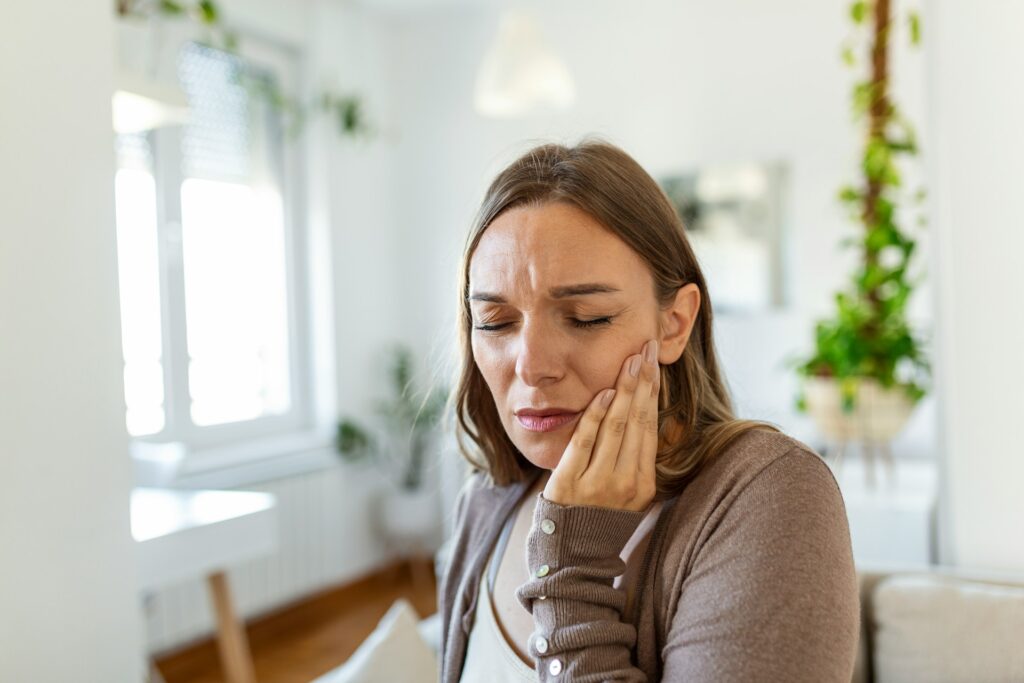Getting a dental crown is a relatively common dental procedure that many people in Pickering and Danforth find necessary to restore and protect their teeth. Crowns can transform damaged teeth back to their original shape and function, providing a durable solution to dental problems. However, it’s quite normal to notice some sensitivity in your teeth after getting a dental crown. This feeling can catch you off guard, especially since the crown is meant to address tooth issues in the first place.
It’s important to understand that this sensitivity is a common experience and usually nothing to worry about. The discomfort might feel like a sharp pain or a tingling sensation when consuming hot or cold foods. Although the instinct may be to panic, this sensitivity is generally temporary and can be managed with simple steps. Knowing what to expect really helps in dealing with it calmly and effectively.
Why Does Tooth Sensitivity Happen?
When you get a dental crown, there’s a bit of a process involved that can lead to tooth sensitivity. Let’s talk about how this process affects your teeth and why you might feel a bit sensitive afterward.
The journey to getting a crown usually begins with preparing your natural tooth. The dentist reshapes your damaged tooth, acting like a sort of sculptor, making room for the crown to fit just right. This reshaping may involve taking off some enamel, which, though necessary, exposes the sensitive layers underneath a bit more than they’re used to. As a result, you might feel your teeth talking back to you with those sharp little messages when you eat or drink something that’s too hot or cold.
Think of your tooth like a superhero: it’s strong and ready to protect you, but even superheroes have their weak spots. The nerves in your tooth, often shielded by the enamel, are no different. Once the crown is securely in place, you’ll find that this sensitivity generally tones down as your mouth adjusts to its new team member. Understanding these reasons can help ease any worry and help you manage those slightly uncomfortable sensations post-procedure.
How Long Does Sensitivity Last?
Understanding how long you might experience sensitivity after getting a dental crown can help settle your worries. For most people, the sensation diminishes within a few days to a couple of weeks as your mouth adjusts to the new crown. This period gives your gums, nerves, and surrounding tissues time to heal and adapt.
Typically, the initial surge of sensitivity occurs during the first few days. During this time, it’s quite normal to feel sharp but short-lived pains when you bite into something, particularly if it’s hot or cold. As days pass, you’ll likely notice the intensity and frequency of these sensations reduce. However, if the sensitivity persists beyond this period or starts to increase, it’s wise to have a chat with your dentist, just to be on the safe side.
Tips to Manage Tooth Sensitivity
Taking steps to manage tooth sensitivity can make a big difference in comfort following a dental crown procedure. Here’s a list to help alleviate the tenderness:
– Sensitive Teeth Toothpaste: Choose toothpaste specially designed for sensitive teeth. These formulas help block the pathways of pain between the surface and the inner nerves.
– Mind Your Meals: Stick to food and drinks that aren’t too hot or cold. Lukewarm items are friendlier while your teeth are settling in. Avoid sticky or crunchy snacks that might aggravate the sensitivity.
– Regular Oral Care: Keeping up with regular brushing and flossing aids recovery. Use a soft-bristled toothbrush and brush gently to avoid further irritating the sensitive area.
Implementing these suggestions can aid in reducing discomfort and supporting the healing process.
When to Contact Your Dentist
Sometimes, tooth sensitivity can indicate the need for professional evaluation. Knowing when to reach out to your dentist is crucial to staying on top of your oral health. If sensitivity continues beyond the initial few weeks or if it becomes more intense, it could signal that further attention is required.
Additional signs that warrant professional advice include:
– Persistent or increasing pain despite following care advice.
– Unusual swelling or redness around the gumline near the crown.
– Difficulty biting down or changes in bite alignment.
Keeping an eye on these symptoms helps ensure any underlying issues are addressed promptly, allowing you to enjoy the benefits of your dental crown without any lingering discomfort.
Protecting Your Dental Crown
Aftercare for your dental crown is not just about minimizing sensitivity but also about ensuring longevity. Here are some straightforward tips to keep your crown in top shape:
– Avoid hard or crunchy foods like nuts and ice to prevent damaging your crown or loosening it.
– Chew on the opposite side of your mouth if you’re concerned about pressure on the crown.
– Stick to your regular dental check-ups so any minor issues can be spotted early.
Taking these precautions secures a long life for your dental crown and optimizes your oral health, so your smile stays bright and comfortable.
Easing Your Worries About Dental Crowns in Pickering
The journey to getting a dental crown can involve a few bumps, like dealing with sensitivity. However, knowing how to navigate through this common issue makes the experience far less daunting. With a few practical steps and awareness of when to seek professional advice, you can manage the sensitivity effectively and enjoy the full benefits of your crown. Embrace the changes with confidence and let your renewed smile shine bright in Pickering.
If dealing with sensitivity from a dental crown feels overwhelming, know that help is available in Pickering. Discover more about how to tackle concerns related to dental crowns in Pickering. At Ivory Dental, we’re ready to offer professional guidance and support to keep your smile comfortable and healthy.



